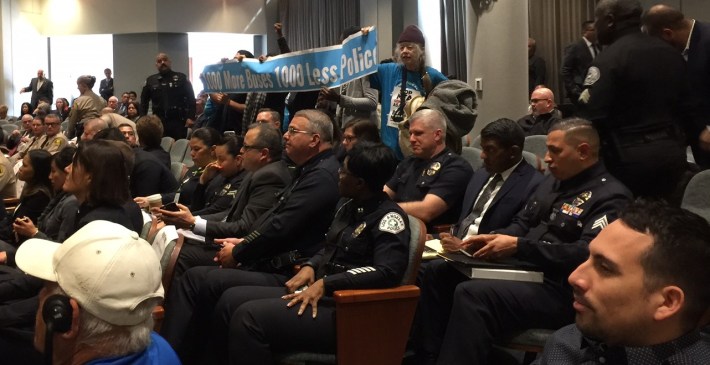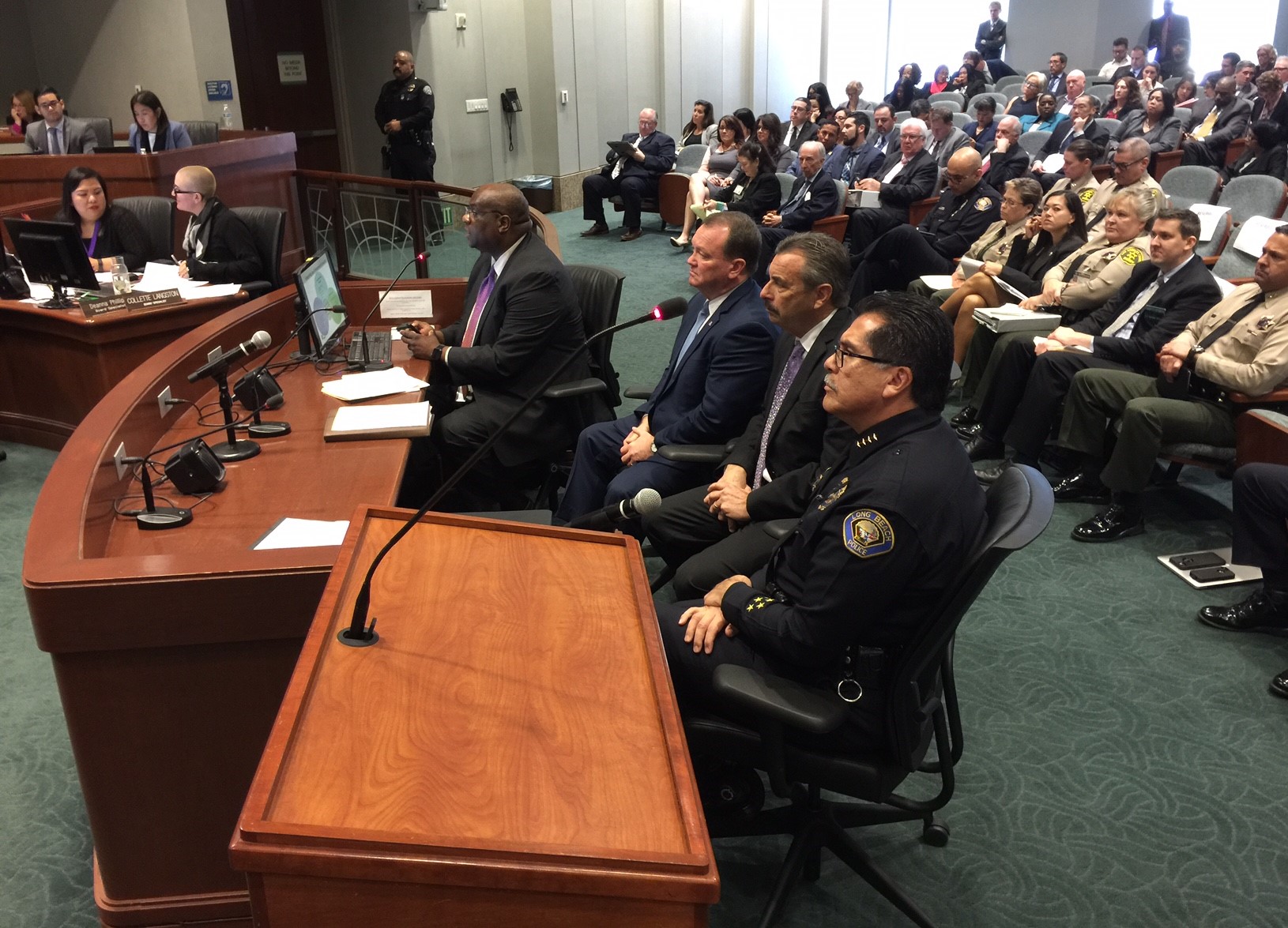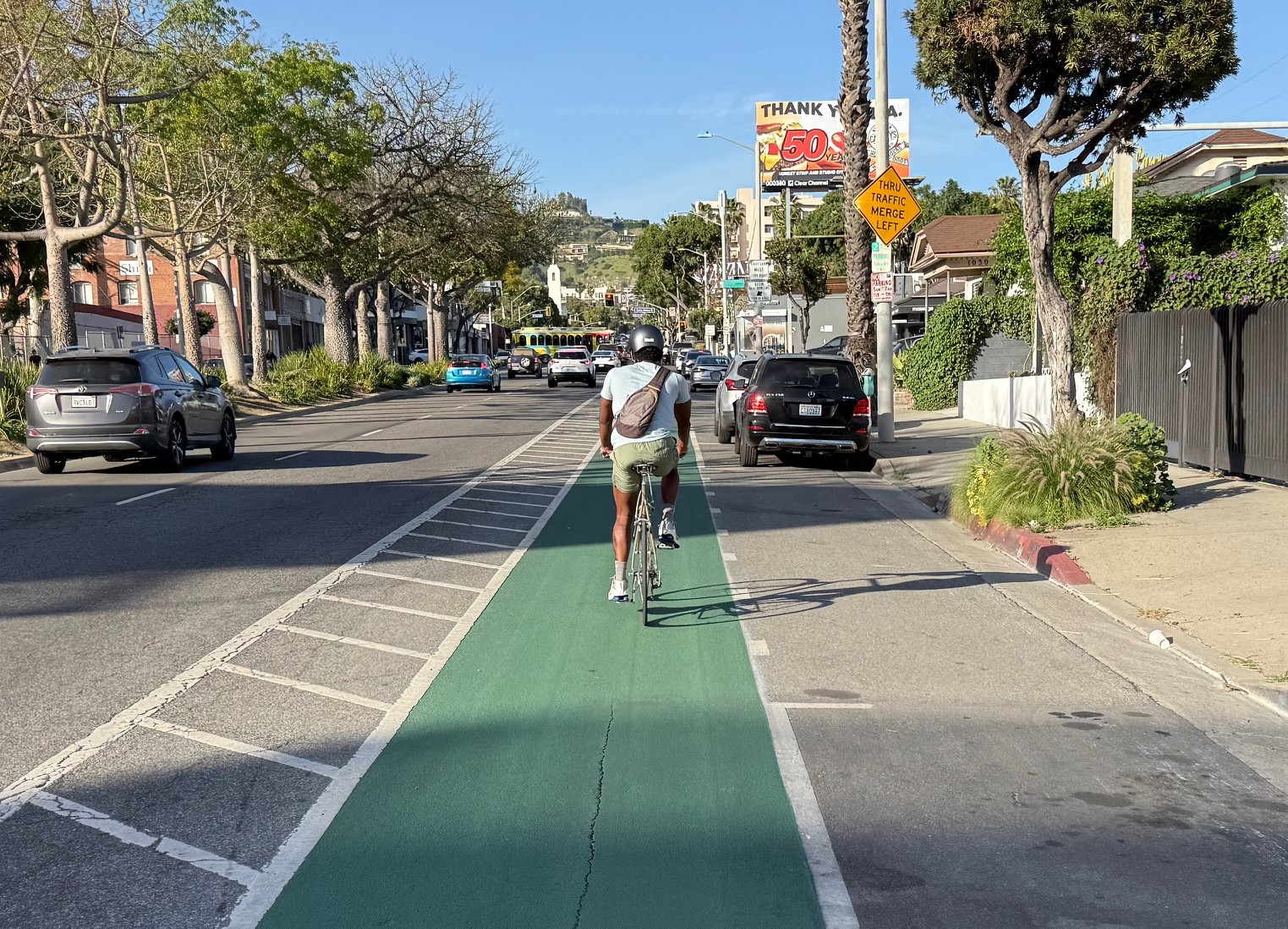Corrected 1/24/2018: This article mistakenly identified the contract as $646 million annually, when that amount is actually for five years. The contract comes out to roughly $130 million annually.
At today's meeting, the Metro board approved a new five-year multi-agency transit policing contract. For the past decade, transit policing had been done by the L.A. County Sheriff Department (LASD.) Under the new contract transit policing will be done by LAPD, LASD, and Long Beach Police Department.
When the proposal first came to the board in November-December 2016, it was $547 million annually:
- L.A. Police Department – $370 million – 68 percent
- L.A. County Sheriffs Department – $150 million – 27 percent
- Long Beach Police Department – $27 million – 5 percent
The contract decision was postponed at the December meeting, in order to give time for a divided board to reach a compromise position. At the time, L.A. Mayor Eric Garcetti and several of his appointees backed a plan to give the lion's share of the contract to LAPD. Meanwhile, most of the L.A. County Supervisors backed their County Sheriffs.
Today the compromise decision was approved unanimously, but there was a high cost for this consensus.
In the intervening months, the proposal was revised to greatly sweeten the pot for LASD. Metro's transit policing contract ballooned $100 million from an initially proposed annual $547 million to today's $646 million:
- L.A. Police Department – $370 million – 57 percent
- L.A. County Sheriffs Department – $246 million – 38 percent
- Long Beach Police Department – $30 million – 5 percent
These combine with Metro's in-house police ($70 million) and contracted private security ($82 million) for an overall annual 5-year policing budget totaling $797 million per year.
Their greatly increased budget brought LASD around to supporting a multi-agency approach. What had looked like a cost savings evaporated.
Though the contract was approved unanimously, several directors questioned LAPD's plan to police Metro paying overtime to officers on their day off. LAPD chief Charlie Beck responded to these concerns stating that supervisory staff will be dedicated (non-overtime) and that, though initial deployment is substantially overtime, it will decrease over time.
Though some public testimony questioned Metro's criminalization of low income riders of color, board discussion was largely gung-ho for police, the more the better. Directors repeated staff claims that greater police presence would make the system safer, especially for former riders who had left the system. In one especially jarring pro-law-enforcement remark, director Ara Najarian invoked yesterday's off-duty officer incident in Anaheim in order to justify additional police presence. Najarian expressed concern that police would find themselves "hounded" and "threatened" like in Anaheim.

Upon board approval, representatives from Fight for the Soul of the Cities unfurled a banner and chanted "1000 more buses, 1000 less police." FFSC recently filed a federal civil rights complaint against Metro policing asserting Metro's out-of-proportion arrests of blacks constitutes a violation of civil rights.
Responding to the interruption, the board briefly went into recess, as Metro's in-house police quieted the demonstrators. Directors soon resumed the meeting and returned to business as usual.







